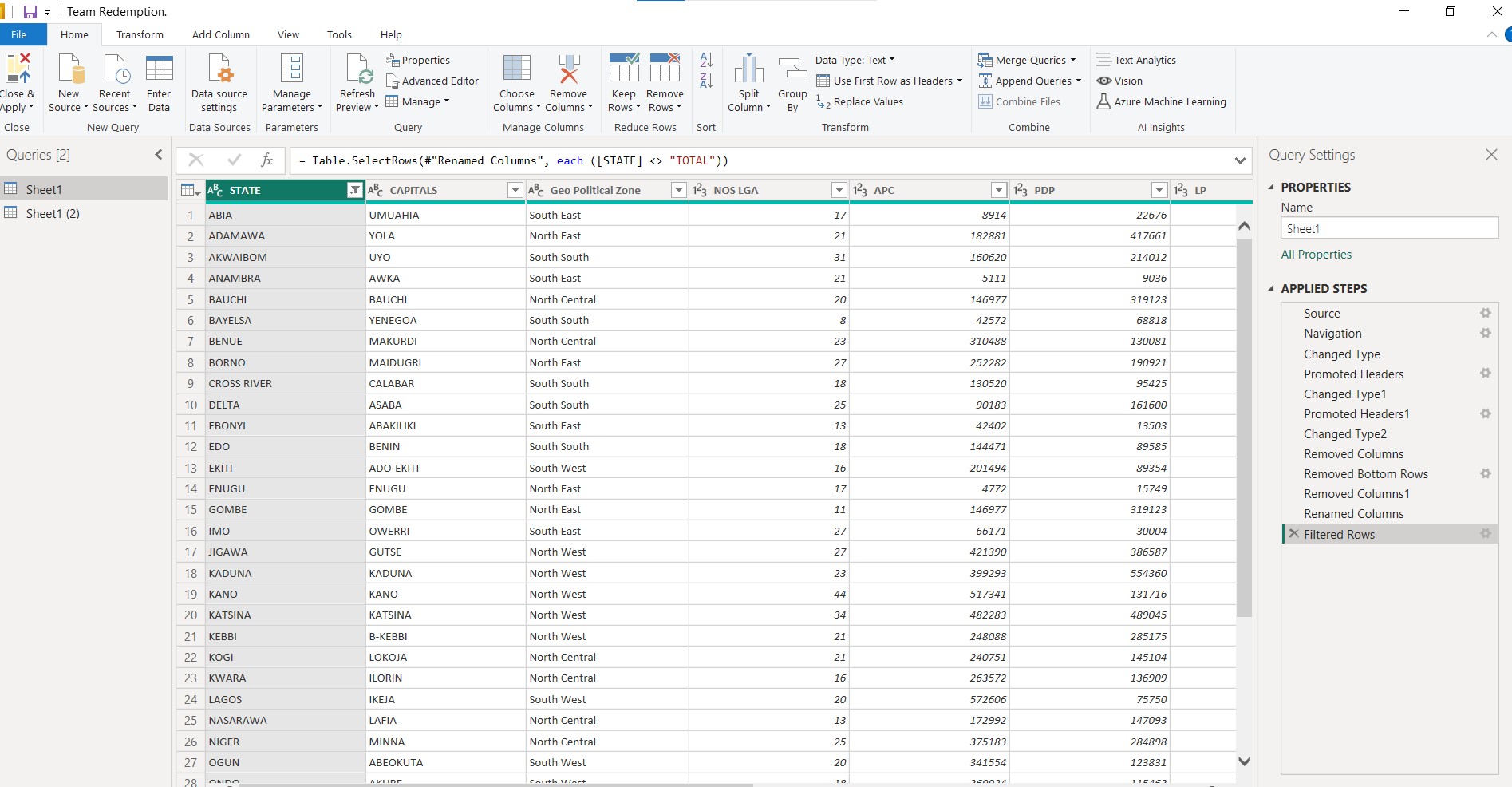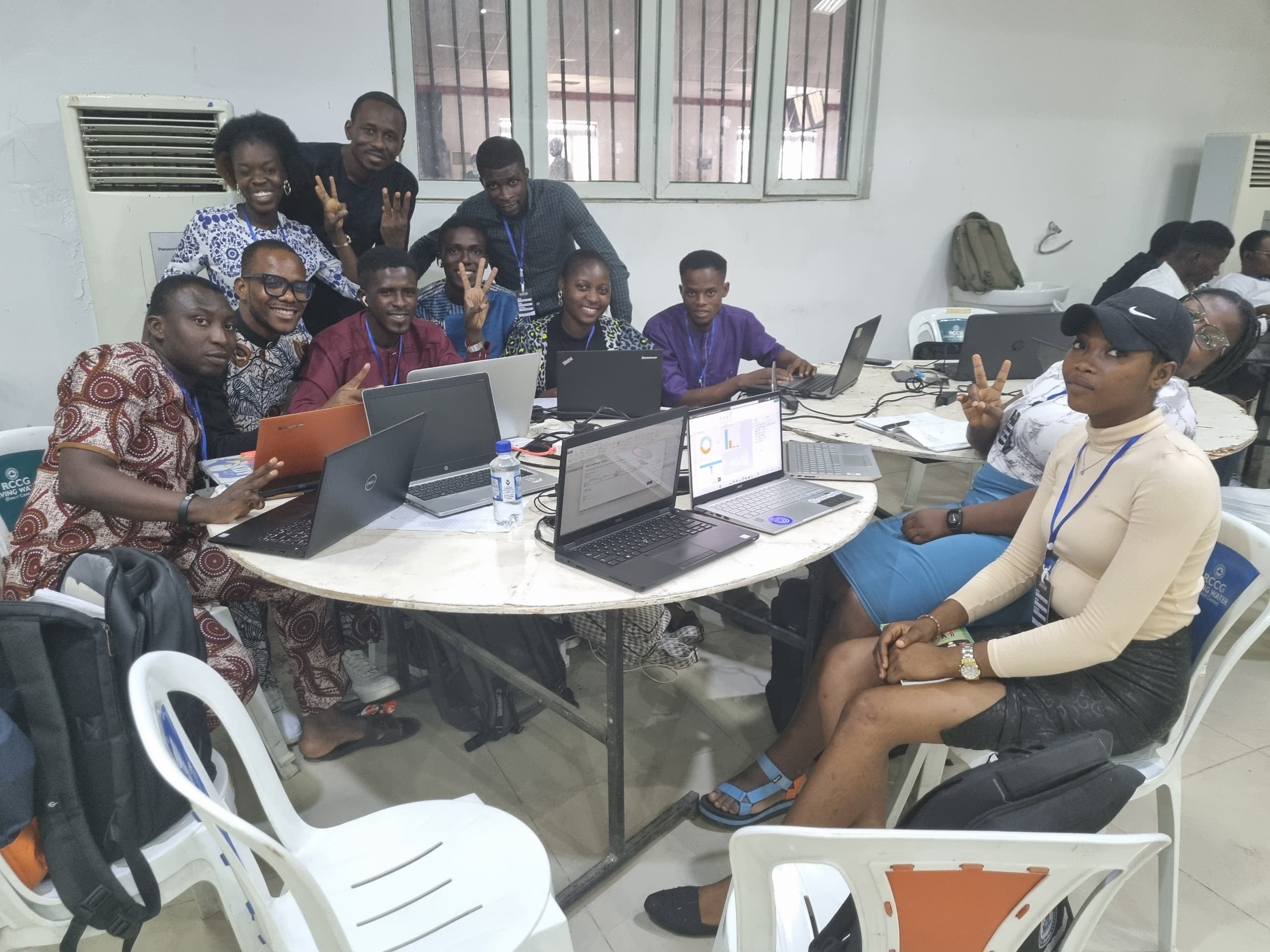This is a collarborative group work I Co-Lead during the Future Clan Bootcamp in the Data analysis class. We were given an assignment to gather dataset in the area of Government, analyze and create a report out of it. After much deliberation we resolve to working on 2023 Nigerian Presidential Election focusing on the four major candidtate. This analysis was carried out from the already exiting data of the 2023 election in which was said to have one of the highest turnouts in the history of Nigeria.
From Street to Spreadsheets: How data caputres the pulse of Nigeria's 2023 Presidentail Election Election. How data caputres the pulse of Nigeria's 2023 Presidentail Election Election.

Introduction
Data Source
Tool Used
Data Transformation and Loading
Data Analysis and Visualization
Insights and Implications
Recommendation
Conclusion
The aim of this project is to develop an interactive dashboard that provide a comprehensive overview of election results across various states and geopolitical zones. The dashboard will also provide key metrics such as total votes per party, distribution of vote according to geo-political zone and how each candidate performance in general.
The primary data sources for this project is gotten from Kaggle.com and vanguardngr.com https://www.google.com/amp/s/www.vanguardngr.com/2023-presidential-election-results-by-states/amp/ https://www.kaggle.com/datasets/ugwukizito/nigerian-election-2023
- Ms Excel Download here
- Microsoft Power BI Donwload here
Using the power query editor, we cleaned the data, which means we made sure it was neat and ready to be analyzed. We dealt with the inconsistency with the data type, check the column quality and distribution to ensure everything is okay.

With the data in Power BI dashboard area, we started analyzing it to find interesting patterns and created visual charts to show these patterns clearly. These visuals help understand things like which candidate, political party, geo-political zone has most of the vote. We made use of the slicer tool to compare candidate performance and how the candidate perfom accoding to geo-politicial zones. We also made use of Card tool to show total number of state, local government area, vote per candidtate etc.
Tinubu: Secured victory with 8 million votes, demonstrating broad support across various regions.
Atiku: Narrowly trailed with 6 million votes, showcasing national appeal, particularly in key battleground states.
Obi: Earned 6 million votes, representing a notable presence in specific regions or demographic groups.
Kwankwanso: Received 1 million votes, adding to the diversity of political voices.
Total Votes Cast: 22 million votes, emphasizing the significance of the electoral process in shaping Nigeria's political landscape.



